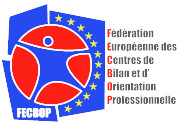General assembly 2011
The General Assembly in 2011 was held exceptionally on 7 December 2011 […]
Qual’n’Guide – le bilan de compétences en Slovqauie
![]() Un partenariat transnational coordonné par BKS Uspech et la Fédération européenne des centres de bilan et d'orientation professionnelle travaille entre 2013 – 2015 sur l'adaptation et la mise en œuvre du système de bilan de compétences en Slovaquie. En coopération avec l'Office Central du Travail, Des Affaires sociales et de la Famille, les demandeurs d'emploi en besoin de reconversion et de conseil en développement de carrière seront le premier groupe cible.
Un partenariat transnational coordonné par BKS Uspech et la Fédération européenne des centres de bilan et d'orientation professionnelle travaille entre 2013 – 2015 sur l'adaptation et la mise en œuvre du système de bilan de compétences en Slovaquie. En coopération avec l'Office Central du Travail, Des Affaires sociales et de la Famille, les demandeurs d'emploi en besoin de reconversion et de conseil en développement de carrière seront le premier groupe cible.
Résultats du projet:
- Adaptation du bilan de compétences pour l'utilisation efficace en Slovaquie
- Programme de formation pour les conseillers de bilan des compétences
- Formation des 46 conseillers des offices de l'emploi au bilan de compétences
- Charte Qualité slovaque pour le bilan de compétences
- Système de contrôle et de certification qualité sous l'égide de la Fédération européenne des centres de bilan et d'orientation professionnelle
Conference: Bilan de compétences in the service of continuous professional pathways: individual and social challenges
 Members of the FECBOP together with social partners from France invite you to the conference Bilan de compétences in the service of continuous professional pathways: individual and social challenges, that will be held in Paris the 4th September 2014. The conference is organized to nourish the debates around the reform of lifelong learning and guidance in France. The conference will introduce a new vision of the bilan de compétences in France and in Europe. The expectations of a person concerning the bilan de compétences are not limited to the elaboration of a professional project, but are much broader: need for personal strategy on the labour market, need for personal accompaniment, need for recognition. European reflections in this area have preceded French work in this area and can help us enrich our analysis and guide our research of solutions.
Members of the FECBOP together with social partners from France invite you to the conference Bilan de compétences in the service of continuous professional pathways: individual and social challenges, that will be held in Paris the 4th September 2014. The conference is organized to nourish the debates around the reform of lifelong learning and guidance in France. The conference will introduce a new vision of the bilan de compétences in France and in Europe. The expectations of a person concerning the bilan de compétences are not limited to the elaboration of a professional project, but are much broader: need for personal strategy on the labour market, need for personal accompaniment, need for recognition. European reflections in this area have preceded French work in this area and can help us enrich our analysis and guide our research of solutions.
Bilan de compétences in Europe – Italy
History
Since the middle of the 90’s there were several testing […]
General Assembly 2008
On 19 May 2008, the General Assembly was held in Thessaloniki (Greece). […]



